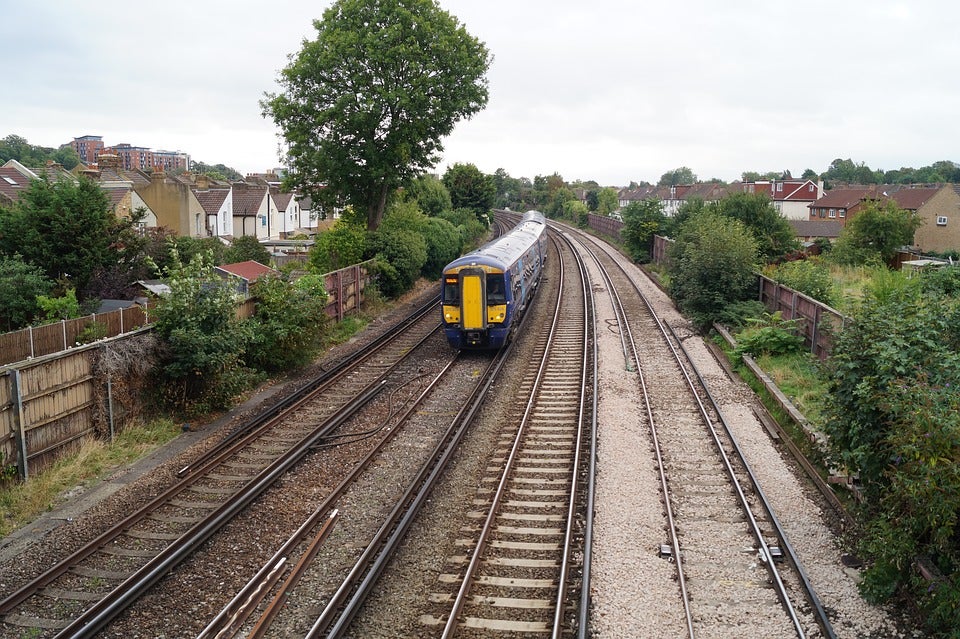
In a reader survey run on Railway Technology this February, 53% of readers said that the UK’s high-speed rail link HS2 would be worth £106bn – the potential overall project cost according to a government review leaked in January.
The survey also found that 35% of respondents believed HS2 was not worth the price and was a ‘waste of taxpayer money’, while 12% said they were still unsure.

Discover B2B Marketing That Performs
Combine business intelligence and editorial excellence to reach engaged professionals across 36 leading media platforms.
HS2’s first phase will connect London to Birmingham, before the route is extended from the West Midlands to Leeds and Manchester in the second phase. The project is scheduled for completion by 2040.
UK Prime Minister Boris Johnson gave the go-ahead to HS2 earlier this month despite the release of the Oakervee report, which warned of a potential 20% rise in costs for the infrastructure project from the previous estimate of £88bn. The original budget for the line was £32.7bn, which was later revised to £56bn due to inflation in 2015.

US Tariffs are shifting - will you react or anticipate?
Don’t let policy changes catch you off guard. Stay proactive with real-time data and expert analysis.
By GlobalDataJohnson did acknowledge cost forecasts had risen and said a number of measures would be taken to ‘restore discipline’ to the HS2 programme. One of these was assigning responsibility to new UK Transport Minister Andrew Stephenson.
In his first speech on Wednesday, Stephenson said that he would be working to maintain a “much better, improved approach” from HS2 Ltd and that he would be “bringing forward legislation for the high-speed line into Manchester as soon as practical”.
Potential economic benefits
Advocates for HS2 have argued that it will boost the UK’s economy, increase connectivity and create more jobs.
It is also expected to free up capacity on existing lines, facilitating more commuter services and freight trains and taking trucks off the roads to ease congestion and cut carbon emissions.
After the UK Government’s announcement on HS2 earlier this month, the Railway Industry Association chief executive Darren Caplan said that the high-speed rail link would enable the delivery of other major rail infrastructure projects, including Northern Powerhouse Rail, Midlands Rail Hub, and Crossrail 2.
“[HS2 will] unlock economic growth throughout the UK, not only by directly connecting eight out of ten of the UK’s largest cities, but also by increasing capacity at 73 stations serving towns and communities across the country, 54 of which aren’t even on the route,” he said.
Caplan also argued that HS2 could employ 30,000 people at peak construction, and that will “act as a catalyst” for some 500,000 jobs and 90,000 homes.
Speaking on Wednesday, Stephenson stated that HS2 would be vital to the success of other major rail projects, and that critics who said that HS2 would only benefit London were ‘simply wrong’.
He added that he will preside over the delivery of a new rail plan that will “examine how HS2 and Northern Powerhouse Rail can best work together, alongside wider investment in Transport for the North and the Midlands”.
Reasons for escalating costs
Since its inception, the HS2 scheme has been hit by delays, cancellations and increasing costs, as well as criticisms surrounding its potential effect on local communities and nature.
Reasons for the budget increase have ranged from the difficulty of construction to missed efficiency savings, as well as costs being underestimated for the value of land and property along the proposed HS2 route.
Gross Hill Management services chairman Michael Gross is the former owner of four commercial buildings around London Euston station, now acquired by HS2. Prior to the government’s HS2 announcement this month, he said that these properties were compulsorily purchased at less than 40% of their true value.
“Regardless of if HS2 is given the go-ahead by the Prime Minister, it is imperative that there is a significant leadership change at HS2 Ltd,” he said. “There has been clear evidence of incompetence and fraud at the company resulting in the costs’ of HS2 ballooning to staggering figures, evidence of attempts to mislead Parliament and a complete disdain for the needs of the taxpayer. It is clear that incompetent management has turned a wonderful idea into a joke.”
In a separate report published early in January, former Deputy Chair of the Oakervee Review Lord Berkeley said that the benefit-cost ratio of HS2 could fall to less than 0.6:1, meaning that taxpayers would receive only 60p of return for every pound spent on the project.
“There is substantial evidence of poor project management and governance, and no sign that this problem will be resolved by the public bodies responsible for its delivery to give stakeholders and Government comfort that it is wise to spend over £100bn on one railway project,” he said.





